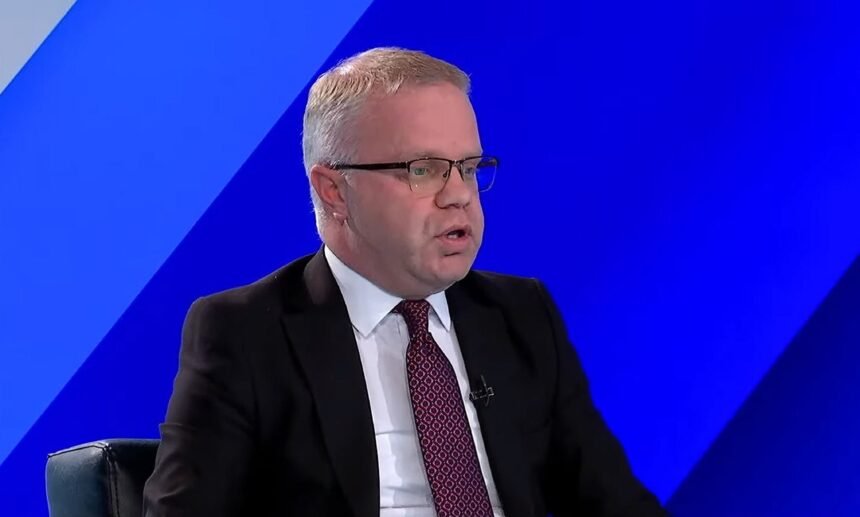The trial of former KLA leaders Hashim Thaçi, Kadri Veseli, Jakup Krasniqi, and Rexhep Selimi at the Kosovo Specialist Chambers in The Hague is entering its final phase, as all witness testimonies have been completed.
Attorney Ardian Bajraktari, in an interview with Ekonomia Online, said the process is approaching its epilogue. He noted that the defense witnesses were “extremely credible and relevant,” emphasizing that the existence of a KLA command structure, which would support the prosecution’s command responsibility claims, was never proven.
“We are now approaching the end of this prolonged process. Since mid-September, we have seen witnesses who were exceptionally credible, reliable, and highly relevant. The process is expected to reach its conclusion in the first part of next year, according to procedural and evidentiary rules,” he said.
Bajraktari stressed that throughout the trial, the prosecution has failed to demonstrate the existence of a formal command structure within the KLA.
“Based on what we have observed, there has been no argument establishing the existence of a command hierarchy or the ability to exercise effective control—two essential elements under international law required for command responsibility. I believe the outcome will confirm that the KLA did not intend to commit crimes, had no formal hierarchy, and its sole goal was the liberation of Kosovo, in coordination with allies, especially the United States. The defense witnesses, though few in number, were highly credible and provided first-hand accounts of the events and the wartime context,” he said.
Bajraktari added that the defense’s evidence was supported not only by witness statements but also by documents, reports, and other materials, reinforcing the claim that no clear hierarchy or effective control existed. He highlighted that U.S. declassified documents contributed significantly to clarifying the truth about the chain of command following the war.
The Judges of the Kosovo Specialist Chambers issued deadlines and orders regarding the conclusion of defense arguments and the remaining phases of the trial. Defense teams for Thaçi and Krasniqi have been instructed to formally conclude their submissions by 2 December 2025, or on the first working day after the court’s final decision on pending evidence requests, whichever is earlier.
Regarding final trial briefs and statements on the consequences of the alleged crimes for victims, the Court partially approved requests for extended deadlines, setting the submission date for 19 January 2026, followed by closing statements scheduled from 9 to 13 February 2026.
The Court also postponed decisions on potential damages processes and rejected the defense’s request for a separate sentencing procedure, confirming that any sentencing will be considered in the Judgment. Parties are instructed to include all sentencing submissions in their final trial briefs.
On 18 November 2025, the last defense witness for Hashim Thaçi testified in the case in which he, along with Kadri Veseli, Rexhep Selimi, and Jakup Krasniqi, faces charges of war crimes and crimes against humanity. The final witness was General Wesley Clark.
The defense began presenting its evidence on 15 September 2025, starting with James Rubin, former assistant to the U.S. Secretary of State, followed by Paul Williams, former legal advisor to the Albanian delegation at Rambouillet. Wesley Clark’s political advisor, John Stewart Duncan, testified from 22–23 September 2025.
Subsequent defense witnesses included James Peter Covey, former UN Deputy Representative in Kosovo, and U.S. diplomat Christopher Hill, who testified in November 2025, along with Wesley Clark’s advisor Michael Durkee.
Support for the former KLA leaders has been shown through protests in Prishtina, The Hague, Tirana, and Strasbourg.
The trial against the four former KLA leaders began on 3 April 2023, led by the Kosovo Specialist Chambers and the Office of the Specialist Prosecutor, on charges of war crimes and crimes against humanity.







